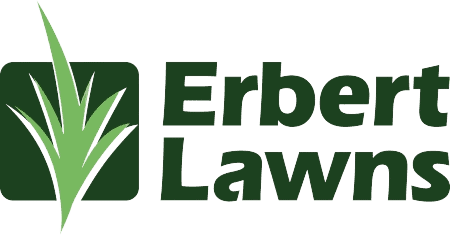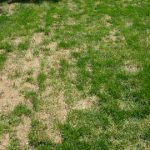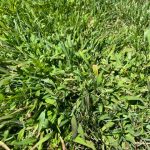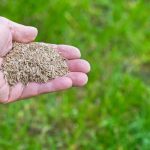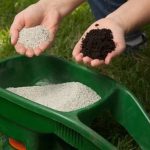In the pursuit of a pristine and thriving lawn, it’s crucial to make informed choices. Erbert Lawns, a beacon of lawn care excellence, brings you an insightful guide on selecting the perfect grass type for your lawn. A lush, vibrant lawn not only enhances the aesthetic appeal of your home but also contributes to a healthier environment. Let’s embark on a journey to discover the ideal grass type that aligns with your region’s climate, soil type, and lifestyle needs.
- Understanding Your Climate
- Soil Matters
- Lifestyle and Usage
- Maintenance and Care
- Aesthetic Preferences
- Water Requirements
- Regional Grass Varieties: A Closer Look
- The Science Behind Grass Types
- Sustainable Lawn Practices
- Seasonal Lawn Care
- Dealing with Lawn Pests and Diseases
- Watering and Irrigation Techniques
- Fertilization for Optimal Growth
- The Importance of Aeration
- Lawn Mowing: More Than Just Cutting Grass
- Organic Lawn Care Options
- The Impact of Shade on Grass Types
- Lawn Renovation and Recovery
- The Role of pH in Lawn Health
- Choosing Grass Seed: Quality Matters
- The Future of Lawn Care: Innovations and Trends
- Personalizing Your Lawn Care Plan
- Engaging with a Professional Lawn Care Service
- Embracing Eco-Friendly Lawn Care
- The Benefits of a Healthy Lawn
- Seasonal Adjustments for Optimal Lawn Health
- Innovative Lawn Care Technologies
- Conclusion
- Frequently Asked Questions
Understanding Your Climate
The climate of your area plays a pivotal role in grass selection. Warm-season grasses, like Bermuda and Zoysia, thrive in hotter regions, while cool-season grasses, such as Kentucky Bluegrass and Fescue, are ideal for cooler climates. The USDA Plant Hardiness Zone Map is an excellent resource to determine your specific zone and suitable grass types.
Soil Matters
Soil type and quality significantly influence grass growth. Conduct a soil test to understand its pH level and nutrient content.
Lifestyle and Usage
Consider your lawn’s usage. High-traffic areas require resilient grass types like Bermuda, while for ornamental lawns, fine-textured grasses like Kentucky Bluegrass are preferable.
Maintenance and Care
Different grass types demand varying levels of maintenance. If you prefer a low-maintenance lawn, consider grasses like Zoysia. For those who don’t mind extra lawn care, Fescue offers a lush, green appearance.
Aesthetic Preferences
The color, texture, and growth patterns of grass types vary. Some homeowners prefer the deep green hue of Bluegrass, while others may opt for the dense, carpet-like appearance of Bermuda grass.
Water Requirements
In regions with water scarcity, it’s crucial to choose drought-tolerant grasses like Buffalo grass. Erbert Lawns’ water-saving tips can further guide you in sustainable lawn care.
Regional Grass Varieties: A Closer Look
Different regions favor different grass types. In the United States, the variety is vast due to the diverse climates and soil types across the country.
- Northeastern States: Cool-season grasses like Kentucky Bluegrass and Perennial Ryegrass flourish here. They endure cold winters and moderate summers.
- Southern States: Warm-season grasses such as St. Augustine and Centipede grass are popular. They thrive in heat and tolerate drought conditions well.
- Midwest: A mix of cool-season grasses like Tall Fescue and Fine Fescue is ideal, given the region’s fluctuating weather patterns.
- West Coast: Depending on the specific climate zone, both cool and warm-season grasses can be suitable. Bermuda grass and Fine Fescue are common choices.
The Science Behind Grass Types
Understanding the science behind different grass types can help in making an informed decision:
- Cool-Season Grasses: These grasses grow actively during the spring and fall when temperatures are cool. They generally require more water and are known for their fine texture and rich green color.
- Warm-Season Grasses: Growing vigorously in the summer, these grasses are more drought-tolerant and heat-resistant. They tend to go dormant and brown in cooler temperatures.
Sustainable Lawn Practices
In an era where environmental consciousness is paramount, choosing eco-friendly grass types and lawn care practices is crucial. Grasses like Buffalo and Bermuda require less water and are more sustainable. Erbert Lawns is committed to eco-friendly lawn care practices, ensuring your lawn is not only beautiful but also environmentally responsible.
Seasonal Lawn Care
Your lawn’s needs change with the seasons, and so should your lawn care strategy. Spring is the time for fertilization and pre-emergent weed control, while fall is ideal for aeration and overseeding. Erbert Lawns provides seasonal lawn care services to keep your lawn healthy year-round.
Dealing with Lawn Pests and Diseases
Diseases and pests are less likely to affect a healthy lawn. However, when issues arise, identifying and treating them promptly is key. Common lawn pests include grubs and chinch bugs, while diseases like brown patch and dollar spot can also be problematic. Explore pest and disease management solutions to protect your lawn.
Watering and Irrigation Techniques
Efficient watering is vital for lawn health. While underwatering can cause stress on the grass, overwatering can result in shallow root systems. Implementing smart irrigation practices, such as using drip irrigation or scheduling watering during cooler parts of the day, can make a significant difference. Erbert Lawns can guide you in setting up efficient irrigation systems.
Fertilization for Optimal Growth
Fertilization is not a one-size-fits-all solution. The type and frequency of fertilizer depend on your grass type, soil condition, and climate. Slow-release fertilizers are often recommended for their long-lasting effects. Erbert Lawns’ fertilization services are tailored to meet the specific needs of your lawn.
The Importance of Aeration
Aeration is crucial for healthy lawn growth. It allows air, water, and nutrients to penetrate the soil, encouraging deeper root growth and improving drainage. This process is particularly important for lawns with compacted soil or heavy foot traffic.
Lawn Mowing: More Than Just Cutting Grass
Maintaining a healthy lawn requires regular mowing. The height at which you cut your grass can impact its health and growth. For instance, cutting grass too short can stress it and make it more susceptible to diseases. Each grass type has an optimal mowing height, and it’s important to adjust your mowing practices with the changing seasons. Erbert Lawns provides expert mowing and lawn care tips to keep your lawn looking its best.
Organic Lawn Care Options
For those who prefer an organic approach, there are numerous options available. Organic fertilizers, made from natural materials, are not only safe for the environment but also promote healthy soil microbiology. Organic weed control methods, such as corn gluten meal, can be effective alternatives to chemical herbicides.
The Impact of Shade on Grass Types
Shade tolerance varies among different grass types. If your lawn has many shaded areas, it’s important to choose a grass type that can thrive with less sunlight. Fine Fescue, for example, is known for its shade tolerance. Understanding the light requirements of each grass type can help you make a more informed decision for shaded lawns.
Lawn Renovation and Recovery
Sometimes, despite your best efforts, a lawn may need more than just regular maintenance—it may need renovation. This could involve reseeding, overseeding, or even starting from scratch in extreme cases. Lawn renovation can rejuvenate an old or damaged lawn, bringing it back to life. Erbert Lawns’ lawn renovation services can help transform your lawn into a lush, green oasis.
The Role of pH in Lawn Health
Soil pH can significantly affect lawn health. Most grass types prefer a slightly acidic to neutral pH. If your soil is too acidic or too alkaline, it can hinder grass growth and nutrient absorption. Regular soil testing and appropriate amendments can keep your soil pH balanced for optimal lawn health.
Choosing Grass Seed: Quality Matters
When it comes to seeding your lawn, the quality of the grass seed is crucial. High-quality seeds have better germination rates and produce healthier, more resilient lawns. Erbert Lawns can guide you in selecting the best grass seed for your specific needs and provide expert seeding services.
The Future of Lawn Care: Innovations and Trends
The lawn care industry is continually evolving, with new technologies and practices emerging. From smart irrigation systems to eco-friendly lawn care products, staying informed about the latest trends can help you maintain a modern, efficient lawn. Erbert Lawns stays at the forefront of these innovations, offering the latest in lawn care technology and practices.
Personalizing Your Lawn Care Plan
Every lawn is unique, and so are its care requirements. Personalizing your lawn care plan based on your lawn’s specific needs, your lifestyle, and environmental factors is key to achieving a healthy, beautiful lawn. Erbert Lawns specializes in creating customized lawn care plans that cater to the individual needs of each lawn.
Engaging with a Professional Lawn Care Service
While DIY lawn care can be rewarding, engaging with a professional lawn care service like Erbert Lawns can ensure your lawn receives the best possible care. With expertise in all aspects of lawn maintenance, from soil analysis to pest control, a professional service can save you time and ensure your lawn is in expert hands.
Embracing Eco-Friendly Lawn Care
In today’s world, where environmental sustainability is increasingly important, embracing eco-friendly lawn care practices is not just a choice, but a responsibility. This includes using organic fertilizers, practicing water conservation, and choosing grass types that are native or adapted to your region, thus requiring less water and care. Our team of experts is dedicated to promoting sustainable lawn care practices that benefit both your lawn and the environment.
The Benefits of a Healthy Lawn
A well-maintained lawn offers more than just aesthetic appeal. It provides a space for outdoor activities, contributes to the local ecosystem by providing habitat for beneficial insects, and improves air quality. Moreover, a healthy lawn can increase your property’s value and curb appeal, making it a worthwhile investment.
Seasonal Adjustments for Optimal Lawn Health
As the seasons change, so do the needs of your lawn. In the spring, focus on weed prevention and fertilization to prepare your lawn for the growing season. Summer requires regular watering and mowing to maintain health and appearance. Fall is the ideal time for aeration and overseeding to repair any damage and prepare for the winter. Winter care involves protecting your lawn from harsh conditions and preparing for the upcoming spring. Erbert Lawns offers tailored seasonal lawn care services to ensure your lawn stays healthy and vibrant all year round.
Innovative Lawn Care Technologies
The lawn care industry is constantly evolving with new technologies and methods. From robotic lawn mowers to advanced soil sensors, these innovations can make lawn care more efficient and environmentally friendly. Staying informed about these advancements and incorporating them into your lawn care routine can lead to a healthier, more sustainable lawn.
Conclusion
Selecting the right grass type is a blend of science, art, and personal preference. At Erbert Lawns, we are committed to helping you create a lawn that not only looks beautiful but also suits your lifestyle and local environment. For personalized advice and exceptional lawn care services, get in touch with us today.
Frequently Asked Questions
Q1: What is the best grass type for high-traffic areas?
Bermuda grass is known for its durability in high-traffic areas.
Q2: How often should I water my lawn?
Watering needs vary by grass type. Check out our guide on lawn watering.
Q3: Can I mix different grass types?
Yes, mixing grass types can provide a balance of qualities. Consult our experts for the best combinations.
Q4: How do I improve my lawn’s soil quality?
Regular fertilization and aeration can significantly improve soil quality. Discover our services here.
Q5: What are the best grass types for cooler climates?
Kentucky Bluegrass and Fescue are excellent for cooler climates. Learn more about their care here.
Q6: Is it necessary to reseed my lawn annually?
Depending on your grass type and lawn condition, reseeding can be beneficial. Explore our overseeding services here.
